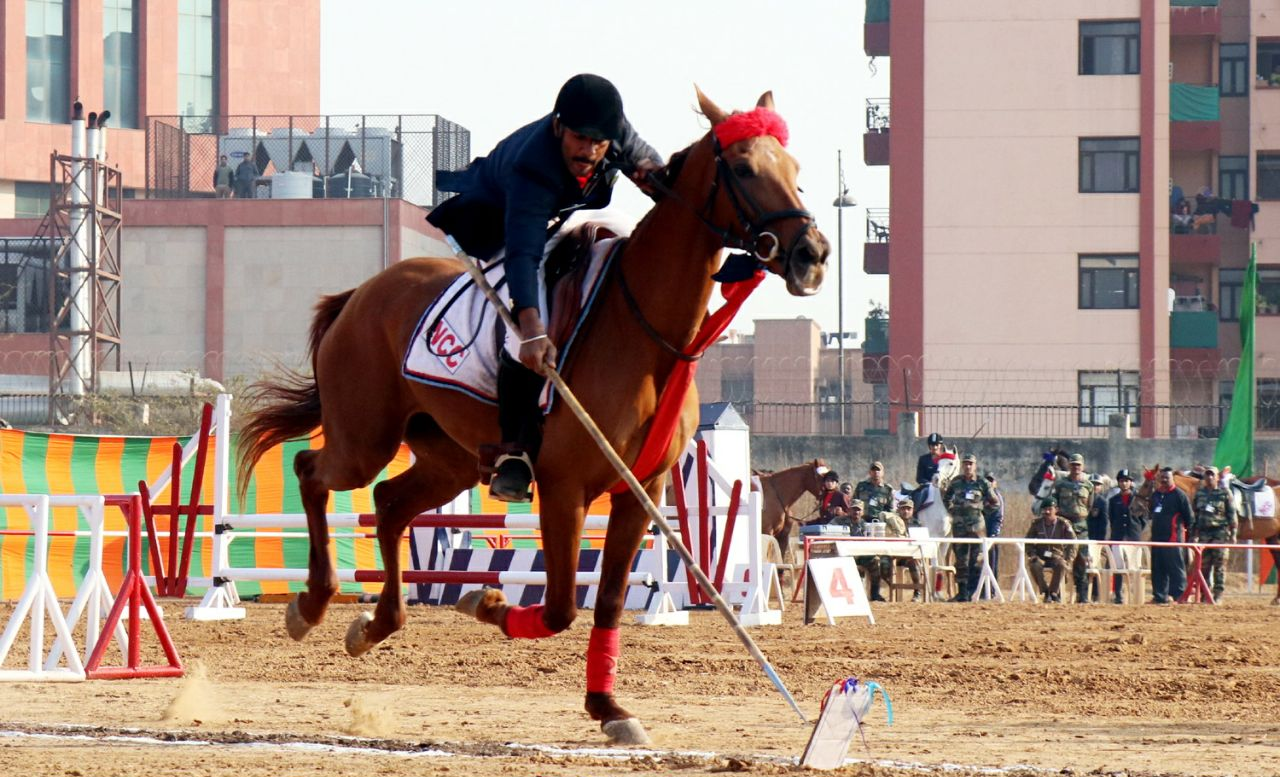College of Veterinary Science, Ludhiana
Know About the College
The College of Veterinary Science is a daughter institution of Veterinary School established in 1862 at Poona with one year course which was later upgraded as the first Veterinary College at Lahore in 1882. A part of the Lahore Veterinary College was shifted to Hisar in 1948 after partition. The College of Veterinary Science, Ludhiana was established in November 1969 on re-organization of the Punjab State and the formation of separate Haryana state at main campus of Punjab Agricultural University. The College was shifted to the Guru Angad Dev Veterinary and Animal Sciences University (GADVASU) Ludhiana in 2005. The College is a centre of regional, national and international excellence in research and learning in animal health and production. It caters to the needs of Punjab by carrying out teaching, research and extension education programmes pertaining to livestock production and health problems and has been instrumental in ushering in an era of ‘White Revolution’ in the State.
The college has highly competent and experienced faculty members who have made significant contributions in research on animal health and production and won various national and international awards. The college has implemented minimum Standards of Veterinary Education Degree Course (B.V.Sc. & A.H.) Regulations, 1993 of Veterinary Council of India and accordingly, external examination system has been introduced for B.V.Sc. & A.H. 5-year programme from the batch admitted in 1998 and onwards. The college is recognized by the Veterinary Council of India and has obtained accreditation from the Indian Council of Agricultural Research in the year 2004.
Initially, the College was established with the following six departments:
- Veterinary Anatomy & Histology (1969)
- Veterinary Bacteriology, Hygiene and Parasitology (1969)
- Veterinary Bacteriology & Virology (1969)
- Veterinary Pathology (1969)
- Veterinary Physiology (1969)
- Veterinary Pharmacology & Medicine
- Veterinary Pharmacology & Toxicology (1969)
- Veterinary Surgery & Gynaecology
- Veterinary Surgery & Radiology (1969)
New departments were started in the coming years, raising the number to twelve:
- Veterinary Clinics & Continuing Education (1988)
- Veterinary Gynaecology & Obstetrics (1976)
- Veterinary Immunology (1988)
- Veterinary Medicine (1975)
- Veterinary Parasitology (1975)
- Veterinary Public Health & Epidemiology (1988)
On implementation of VCI regolation as notified in extraordinary Gazette of India Part II, Section (3), sub-section (1) notification No.57 dated 7.2.94 from Academic session 1994-95 and onwards the number of departments was raised to 18 as detailed below:
- Department of Animal Breeding and Genetics
- Department of Animal Nutrition
- Department of Animal Reproduction, Gynaecology & Obstetrics
- Department of Livestock Production and Management
- Department of Vety. Anatomy and Histology
- Department of Vety. and Animal Husbandry Extension
- Department of Vety. Biochemistry
- Department of Vety. Clinical Medicine, Ethics and Jurisprudence
- Department of Vety. Clinical Services Complex
- Department of Epidemiology and Preventive Vety. Medicine
- Department of Vety. Microbiology
- Department of Vety. Parasitology
- Department of Vety. Pathology
- Department of Vety. Pharmacology and Toxicology
- Department of Vety. Physiology
- Department of Vety. Public Health
- Department of Vety. Surgery and Radiology
- Department of Livestock Product Technology
From academic session 2009-10 the university has implemented Veterinary Council of India- Minimum Standards of Veterinary Education for B.V.Sc. & A.H. Regolations, 2008 and the following departments were reorganized/ established:
- Veterinary Anatomy
- Veterinary Physiology and Biochemistry
- Veterinary Pharmacology and Toxicology
- Veterinary Parasitology
- Veterinary Microbiology
- Veterinary Pathology
- Veterinary Public Health and Epidemiology
- Animal Nutrition
- Animal Genetics and Breeding
- Livestock Production Management
- Livestock Products Technology
- Veterinary Gynaecology & Obstetrics
- Veterinary Surgery and Radiology
- Veterinary Medicine
- Veterinary and Animal Husbandry Extension Education
- Teaching Veterinary Clinical Complex
- Instructional Livestock Farm Complex
From academic session 2016-17 the university has implemented Veterinary Council of India- Minimum Standards of Veterinary Education - (Bachelor of Veterinary Science and Animal Husbandry - Degree Course) Regulations, 2016.
All these departments of the college have excellent laboratory facilities and adequate infrastructure for undergraduate and postgraduate teaching and research, a well-equipped veterinary teaching hospital to cater to the demands of large and small animal health care. In addition, the college also has an elite dairy herd and poultry farm which provide adequate facilities for teaching and research. This is the only veterinary college in India having three ICAR Centres of Advanced Studies in the Department of Veterinary Surgery & Radiology and Department of Veterinary Gynaecology and Obstetrics. The Department of Teaching Veterinary Clinical Complex and the Department of Livestock Production Management has experiential learning projects.
College of Veterinary Science offers (from 2016-17) the following programme of study:
- B.V.Sc. & A.H. Five and half year programme
The programme leading to the award of the B.V.Sc. & A.H. degree is designed to equip graduates with the knowledge and skills essential to a veterinary career. The programme is divided into three phases. The pre-clinical phase, undertaken in years one and two, provides education in basic sciences such as anatomy, physiology and biochemistry, as well as in animal husbandry through intramural learning. The para-clinical phase, undertaken in years three and four, includes bridging subjects between the pre-clinical and clinical phases, such as Pathology, Microbiology, Parasitology, Pharmacology and basic clinical science. The clinical phase (Surgery, Medicine and Gynaecology) starts in year four and culminates in the fifth and final year. At the end of course work the students undergo a compulsory rotating internship programme of envisaging on the job training in animal production, technology, diagnostic laboratories and hospital practice. The various departments of the College, aided by teaching veterinary hospital ensure both currency and relevance in basic and applied biological sciences through clinical practice.
Recent graduates have shown considerable satisfaction with the programme of study, as it prepared them for professional life and have developed confidence in their skills for clinical investigation and lifelong learning, in the context of general practice.
The successful completion of B.V.Sc.& A.H. programme entitles the graduates for registration with the Punjab State Veterinary Council / Veterinary Council of India as registered veterinary practitioners.
Mandate
- To help the society by providing adequate supply of trained Veterinary professionals capable of handling livestock health and production aspects including Master’s and Doctorate level specialists according to the needs of the State Government and allied agencies.
- To undertake research work in selected areas and wherever applicable following multi-disciplinary approach.
- To provide opportunities for continuing education for professionals in Veterinary Science.
- To provide consultancy and specialist services to livestock owners, government, semi-government and allied agencies
- To run “Referral” hospitals for specialized treatment of the referred livestock patients and also to provide clinical training to the students.
- To foster faculty development by providing them with opportunities to participate in appropriate training programmes, conferences, workshops, seminars, symposia etc. and avail other opportunities in exchange programmes.
- To encourage cooperation and collaboration with other departments, Colleges, Universities and Industries both nationally and international
Goals
- To produce Veterinary graduates, scientists and extension workers for promoting better livestock health by prevention of disease, increasing production and reproduction of livestock, thus improving the quality of rural life in Punjab.
Dean, College of Veterinary Science

Dr. Swaran Singh Randhawa
Address: Dean, College of Veterinary Science, Guru Angad Dev Veterinary and Animal Sciences University, Ludhiana
Email: deancovsldh@gadvasu.in
Call: +91-161-2414020
Brief Introduction :
Dr. Swaran Singh Randhawa, has joined as Dean, College of Veterinary Science, Guru Angad Dev Veterinary and Animal Sciences University, Ludhiana. Dr. Swaran Singh Randhawa is a devoted and industrious clinician,teacher as well as a researcher. He has an excellent scientific career,evidenced by his quality research and clinical papers. He has published more than 70 research papers in national and international journals. He has been honored with University Best Teacher Award for the year 2017-18. He did a pioneer work on ‘Bovine lameness’. For the first time in India, He evaluated sole thickness using ultrasonography in crossbred dairy cattle, which can be used as a selection criterion for breeding programs. He developed Hindi version of “Claw Health Atlas” for International Committee for Animal Recording (ICAR). He also standardized ‘Fast localized abdominal ultrasonography of horses’ (FLASH) for diagnosis in equine colic patients. Recently, he standardized transtracheal wash (TTW) and bronchoalveolar lavage (BAL) techniques for diagnosis in respiratory problems in equines. He also established endoscopy for diagnosis of upper respiratory tract (URT) diseases of equines at the university hospital. His research has been acclaimed nationally and internationally (Finland and New Zealand) with more than 70 presentations in conferences. Presently, He is part of DBT Canine Research Centre and working on the project ‘Elucidating the etiology of chronic gastro-enteropathies in dogs’. He guided 10 postgraduate students. He is currently supervising 2 M.V.Sc and 2 Ph.D student. Presently, he is Editor of Indian Journal of Veterinary Medicine and member of the National Academy of Veterinary Sciences (India).
Former Dean
| Sr. No. | Name | Duration on the post | Date of Retirement | Photograph |
|---|---|---|---|---|
| 1. | Dr. Ajit Singh | 21.05.1970 to 21.12.1973 | 30.11.1971 |  |
| 2. | Dr. Bakhsish Singh Gill | 21.09.1974 to 19.06.1983 | 30.09.1985 |  |
| 3. | Dr.Balbir Singh Paul | 20.06.1983 to 11.03.1985 | 31.08.1985 |  |
| 4. | Dr.Balwant Singh | 12.03.1985 to 15.11.1993 | 31.01.1999 | 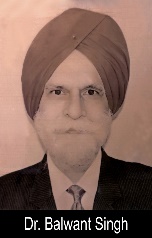 |
| 5. | Dr.Sohan Singh Rathore | 16.11.1993 to 31.12.1993 | 31.12.1993 | 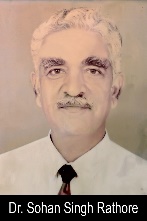 |
| 6. | Dr.Khusdev Kumar Baxi | 01.01.1994 to 31.12.1997 | 30.04.1998 | 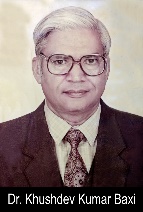 |
| 7. | Dr. Rajya Pal Saigal | 06.01.1998 to 17.01.1999 | 31.05.2003 | 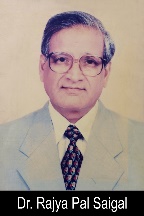 |
| 8. | Dr. Jugraj Singh Dhillon | 18.01.1999 to 30.06.2000 | 30.06.2000 | 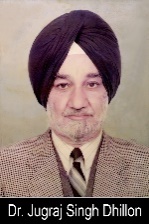 |
| 9. | Dr.Rajya Pal Singh | 01.07.2000 to 31.05.2003 | 31.05.2003 | 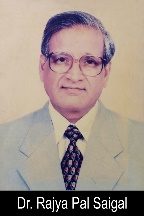 |
| 10. | Dr. Mohinder Singh Oberoi | 20.06.2003 to 17.07.2005 | 31.08.2006 | 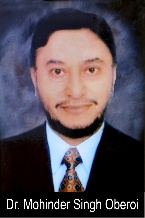 |
| 11. | Dr. Dev Raj Sharma |
18.07.2005 to 30.01.2006 24.04.2006 to 30.04.2006 |
30.04.2006 |  |
| 12. | Dr. Onkar Singh Parmar | 31.01.2006 to 23.04.2006 | 31.05.2008 |  |
| 13. | Dr. Kirpa Shankar Roy | 01.05.2006 to 27.12.2006 | 31.12.2006 | 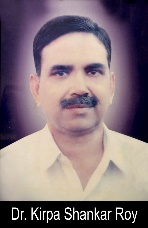 |
| 14. | Dr. Simrat Sagar Singh | 28.12.2006 to 10.05.2011 | 31.03.2018 | 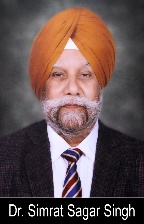 |
| 15. | Dr. Harpal Singh Sandhu | 11.05.2011 to 11.05.2016 | 30.11.2019 | 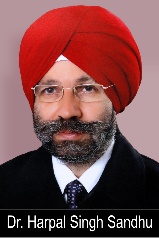 |
| 16. | Dr. Simrat Sagar Singh | 12.05.2016 to 27.09.2016 | 31.03.2018 | 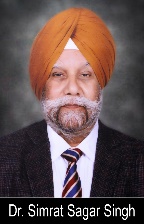 |
| 17. | Dr. Parkash Singh Brar | 27.09.2016 to 22.09.2020 | 31.01.2026 |  |
Facilities
- Main Veterinary College Building Complex
- Silver Jubilee Block
- Clinical diagnostic laboratory
- Semen process and Embryo transfer technology laboratory
- Animal Science Complex
- G S Sidhu Animal Nutrition Centre
- Small and Large animal Hospital/Clinic
- Six Lecture Halls with LCD facility
- UG/PG Laboratories
- Examination Hall –seating capacity of 200
- Computer Centre
- Auditorium
- R&V NCC Sqn.
- Experimental and Instructional Herds
- Post Mortem Hall
- Livestock Farms
- Poultry Farm
- Hostels for boys and girls


It was in the year 1984, 1 Punjab R & V Squadron NCC was made operational in the campus. The unit has its own riding school comprising of riding arena and facilities for equestrian activities like show jumping, Tent Pegging, Dressage etc. The Unit is commanded by a Regular Army Officer of the rank of Lt. Col and Above of Remount and Veterinary Corps (RVC) and Five other regular army personnel as supporting staff. These regular army personnel get posted out every two years and are replaced by new ones. As per Veterinary Council of India, Remount and Veterinary Corps NCC programme is compulsory for all undergraduate students of College of Veterinary Science. The students (except NRI/OCI/Foreign Nationals) admitted to B.V.Sc. & A.H. programme at College of Veterinary Science, Ludhiana have to register for compulsory R & V Sqn. NCC course each of 0+1 non-credit for the first three years (NCC I, II & III). They have to clear all the three NCC courses and attend at least one Annual Training Camp to complete their degree requirements. Every year three students who get trained in horse riding participate in Republic Day Camp (RDC) at New Delhi where they compete with the riders of 17 different directorates from all over India in different equestrian sports. The riders from the unit have won many laurels at RDC like Best Rider trophy, Best Tent Pegger, Sharma Trophy and various medals. Apart from RDC, the cadets are also made to compete in various horse shows which are conducted by National and State Equine Federations.
MOTTO OF NCC
- Unity and Discipline
AIMS OF NCC
- To Create a Human Resource of Organized, Trained and Motivated Youth, To Provide Leadership in all Walks of life and be Always Available for the Service of the Nation.
- To Provide a Suitable Environment to Motivate the Youth to Take Up a Career in the Armed Forces.
- To Develop Character, Comradeship, Discipline, Leadership, Secular Outlook, Spirit of Adventure, and Ideals of Selfless Service amongst the Youth of the Country.
CORE VALUES OF NCC
- A sense of patriotic commitment to encourage cadets to contribute to national development.
- Respect for diversities in religion, language, culture, ethnicity, life style and habitat to in still a sense of National unity and social cohesion.
- Abiding commitment to learn and adhere to the norms and values enshrined in the Indian Constitution.
- Understanding the value of a just and impartial exercise of authority.
- Ability to participate in community development and other social programme.
- A healthy life style free of substance abuse and other unhealthy practices.
- Sensitivity to the needs of poor and socially disadvantaged fellow citizens.
- Inculcating habits of restraint and self-awareness.
- Understanding the values of honesty, truthfulness, self-sacrifice, perseverance and hard work.
- Respect for knowledge, wisdom and the power of ideas.
Two Teachers from College of Veterinary Science are nominated as Associate NCC Officers (ANO). They undergo full Basic Military Training at RVC centre and College, Meerut.
| Sr. No. | Name & Designation | Department | Phone & Email |
|---|---|---|---|
| 1. | Capt. (Dr.) Nittin Dev Singh, ANO and Associate Professor |
Department of Veterinary Pathology, COVS, GADVASU, Ludhiana NCC Commission no.: NCC/12110181 |
9780852132 drndsingh@gmail.com |
| 2. | Capt. (Dr.) Prem Prakash Dubey, ANO and Scientist |
Department of Animal Genetics and Breeding & Directorate of Livestock Farms, COVS, GADVASU, Ludhiana. NCC Commission no.: NCC/12110303 |
9888802905 prakashagb@gmail.com |
ACTIVITIES OF CADETS OF 1 PB R &V SQUADRON NCC LUDHIANA
|
Cadet of 1 Pb R & V SQN NCC in action at Republic Day Camp |
Swachh Bharat Abhiyan |
Cadets doing awareness campaigns for general public regarding cleanliness |
|
Show Jumping |
Team of Riders with Medals at State Horse Show |
Swachh Bharat Abhiyan:Cleaning Public Places |
|
Educating public regarding waste management |
Best Marching Contingent at Athletic Meet of GADVASU |
Trick Jumping during Athletic Meet of GADVASU |
|
Pilot Cadets withADG NCC in the Unit Premises |
Cadets Escorting the Chief Guest for Athletic Meet |
Tree Plantation Drive |
Faculty Detail
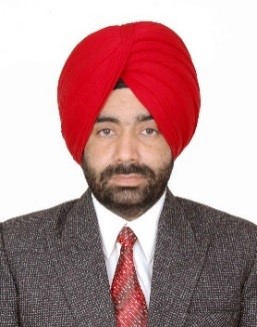
Dr. Mandeep Singh Bal
Designation : Principal Scientist-cum-Head
Contact Address : Department of Animal Disease Research Centre, College of Veterinary Science, Guru Angad Dev Veterinary and Animal Sciences University, Ludhiana, Punjab 141004
Telephone : 0161-2414029
Mobile : +91 9779540624
Email : bal_epi@yahoo.co.in, inchargeadrc@gadvasu.in
Academic Credentials
- B.V.Sc &A.H
- M.V.Sc.
- Ph.D.
- Six month advanced training (w.e.f. May 2012 to Oct. 2012) on Molecular Epidemiology of Canine Parasitic Zoonoses at Zoonotic Parasite Research Unit, Department of Veterinary Microbiology, Western College of Veterinary Medicine, University of Saskatchewan, Canada.
Teaching appointments
- Involved in teaching of undergraduate and postgraduate courses of Veterinary Parasitology.
Other appointments
- Landscaping Incharge, GADVASU
- Warden, Hostel No. 3, GADVASU
Area of research
- Veterinary Parasitology: Haemoparasites of domesticated animals, Anthelmintic Resistance & Parasitic zoonoses
Ongoing projects
|
Name/ No.
of Project/ Scheme |
Funding Agency |
Period
From
To |
Scientists involved (PI/ Co-PIs) |
|
Use
of foldscope for diagnosis of parasitic diseases with emphasis on canine
zoonotic parasites under human animal interface |
DBT, New Delhi |
2016- 2019 |
Dr. M. S. Bal (PI), Dr. C. K. Singh,
Dr. Paramjit Kaur, Dr. L. D. Singla (Collaborators) |
|
ICAR-108: Investment in ICAR leadership in Agricultural Higher
Education (IILAHE): NAHEP Component 2 Project ) NIBLD (National Image base for Livestock Diseases) App |
ICAR, New Delhi |
December 2021 to till date (Continuing) |
Dr. M. S. Bal & Dr. S.S. Randhawa, (Project
Co-Coordinator/Nodal Officer/PI), Drs. G. Filia, V. Mahajan, K. Gupta Teachers from
clinical departments (Co-Investigators) |
|
Medicinal Plants
garden for awareness/demonstration and Veterinary Research purpose at
GADVASU, Ludhiana, Punjab. |
Central Council for Research in
Ayurvedic Science (CCRAS) |
2018- 2022 |
Drs. Santosh S.
Mane, S. K. Sharma, M. S. Bal (Co-PI)
and GajarmalAmitAshok |
|
Development of Nursery for cultivation of five selected medicinal
plants at Guru AngadDev Veterinary and Animal Sciences University, Ludhiana,
Punjab |
National
Medicinal Plant Board (NMPB), Ministry of Ayush, Govt. Of India |
2019-2022 |
Santosh S. Mane, V. K. Dumka, S. K. Sharma and M. S. Bal (Co-PI) |
|
Molecular
epidemiology of Trichinellosis and Toxoplasmosis in India: addressing
neglected zoonotic diseases in one health context. |
ICMR, New Delhi |
2017-2022 |
Drs. B.B.Singh,
J.P.S. Gill, R.S. Aulakh,, M. S. Bal (Co-PI) |
|
Epidemiology
of Gastrointestinal Parasitic Infections in Relation to Anthelmintic Resistance In Sheep and Goats
in Punjab State. |
Rashtriya Krishi Vikas Yojana (RKVY) |
2014-2017 |
M. S. Bal(PI), L.D.
Singla, ParamjitKaur, Harkirat Singh |
|
Epidemiology
of abortions of parasitic origin in ruminants in relation to various risk factors
and evaluation of economic impact. |
Rashtriya
Krishi Vikas Yojana (RKVY) |
2018-2019 |
PI: Dr. M. S. Bal |
|
Evaluation
of different ante mortem diagnostic approaches for detection of co-infection
of bovine tuberculosis and paratuberculosis |
Rashtriya
Krishi Vikas Yojana (RKVY) |
2017-19 |
Drs.
G. Filia, C. K. Singh, M. S. Bal
(Co-PI) and V. Mahajan |
|
Animal
Disease Research Centre & Strengthening of diagnostic facilities and
experimentation (C:ADRC-1) |
Punjab Govt. |
2002 to till
date(Continuing) |
Whole Department
(Actively involved ) |
|
Project
Directorate on Animal disease monitoring & surveillance (PD_ADMAS) |
ICAR |
2002 to till date
(Continuing) |
Dr. M. S.
Bal(In-Charge ADRC): PI Dr. G. Filia: Co-PI Drs. V Mahajan,
Jagmeet Kaur, Ashok Kumar (Collaborators) |
|
Empolyment of
immunomolecular diagnostic tools
for haemoprotozoan diseases of
livestock in Punjab state |
RKVY, Govt. of India |
2011-14 |
Dr. L.D. Singla, Dr. P.D.
Juyal, Dr. M.S. Bal, Dr. Paramjit Kaur, Dr. H. Singh
|
Research honours awards
- Awarded International Travel Grant from DST, New Delhi for attending 24th International conference of WAAVP (World Association for advancement of Veterinary Parasitology) held at Perth, Australia from 25-29th August 2013.
- Award of Honour by Directorate of Student’s welfare, GADVAU during republic day function (26th January 2016) of University for dedicated work as In-Charge Landscaping, GADVASU, Ludhiana.
- Distinguished Alumnus Award by Alumni Association College of Veterinary Science during Golden Jubilee Celebration function of COVS, Ludhiana on 29.12.2020
- Six month advanced training (May to October 2012) on ‘Molecular Epidemiology of Parasitic Zoonoses’ at Department of Veterinary Microbiology, University of Saskatchewan, Canada.
- Best poster award for presenting a poster in 3rd annual conference of IAVPHS held on 9th-10th Feb. 2005 organized by Department of Veterinary Public Health, PAU, Ludhiana.
- Best Poster award (3rd ) 20th National congress of Vety Parasitology, for presentation of research work (poster) ‘Occurrence of Balantidium coli in diarrheic faecal samples of Cattle and Buffaloes’ by Ashuma , Randhawa SNS, Bal M.S., Gupta M.P., Kumar H., Kaur K., Filia G. et al held at CCS HAU, Hisar, Department of Vety Parasitology on18-20th Feb 2010.
- Best Oral Presentation Award (1st ) for presentation of research work entitled ‘Diagnosis and management of anaplasmosis outbreaks in cattle in Punjab’ by Bal MS, Mahajan V, Filia G, Singh CK and Kaur P. during International symposium and 7th conference of Indian Meat Science Association (IMSACON-VII) to be organized by department of Livestock Products & Technology, GADVASU, Ludhiana from 10-12 November 2016.
- Team Award during Republic day function of university on 26.01.2022: Veterinary Hospital (Departments of VSR, VM, VGO, ADRC) for providing disease diagnostic services in Vety. Clinics especially during Covid-19 situation. Team Members: Faculty members (Drs. M. S. Bal, G. Filia, V. Mahajan)
- Third Prize in Stall Competition (ADRC), Pashu Palan Mela, March 2023.
- University Merit certificate & fellowship during M.V.Sc
No of publications
| Research: 92 | Extension: 45 | Books: 01 | Manuals: 02 |
|---|
Publication
- Pandit D, Bal MS, Kaur P, Singla LD, Mahajan V, Setia RK. 2021. Seroprevalence and spatial distribution of toxoplasmosis in relation to various risk factors in small ruminants of Punjab, India. Indian Journal of Animal ResearchDOI: 10.18805/IJAR.B-4358
- Kaur, P., Sharma, A., Juyal P D, Bal, MS, Singh C and Singla LD.2021. Comparative epidemiology and pathophysiology of patent and latent babesiosis caused by Babesiabigemina in buffaloes and cattle from different agroclimatic zones of Punjab State, India. Tropical Animal Health Production 53:264-272.
- Mahajan V, Filia G, Bal M S, Leishangthem G D and Sandhu K S (2021). Epidemiological and pathological studies on outbreaks of swinepox in Punjab. Haryana Vet. 60(1), 135-136.
- N Sangha, C K Singh, K Gupta, V Mahajan and M S Bal. (2020).Novel approach of foldscope for diagnosis of epithelial tumors in animals.International Journal of Current Microbiology and Applied Sciences. 9(7): 156-160.
- Bal MS, Sagar R, Kaur P, Mahajan V, Singla L Dand Singh C K. 2019. Foldscope as a diagnostic tool for identification of parasites of domesticated animals.Indian Journal of Animal Sciences89(10):1082-1085.
- Sharma A, Singla LD, Kaur P, Bal M S, Sumbria D, Setia R.2019. Spatial seroepidemiology, risk assessment and haemato-biochemical implications of bovine trypanosomiasis in low lying areas of Punjab, India.Comparative Immunology, Microbiology and Infectious Diseases
- Pawar P D, Singla L D, KaurP,Bal M S and Javed M. 2019. Evaluation of multiple anthelmintic resistance for gastrointestinal nematodes using different faecal egg count reduction methods in small ruminants of Punjab, India.ActaParasitologica.64(3): 456-463
- Parashar R, Singla LD, Batra K, Kumar R, Kashyap N, Kaur P and Bal MS.2018. Unraveling cryptic epizootiology equines trypanosomosis in Punjab state of India by parasitological and sero-molecular techniques.ActaTropica 185: 18-26.
- Bal MS, Mahajan V, Filia G, Singh CK and Kaur P. 2017.Management of outbreaks of anaplasmosis in cattle in Punjab State.Journal of Animal Research 7 (5): 885-889
- Bal MS, Mahajan V, Filia G, Kaur P, Singh A (2016) Diagnosis and management of bovine babesiosis outbreaks in cattle in Punjab state, Veterinary World, 9(12): 1370-1374.

